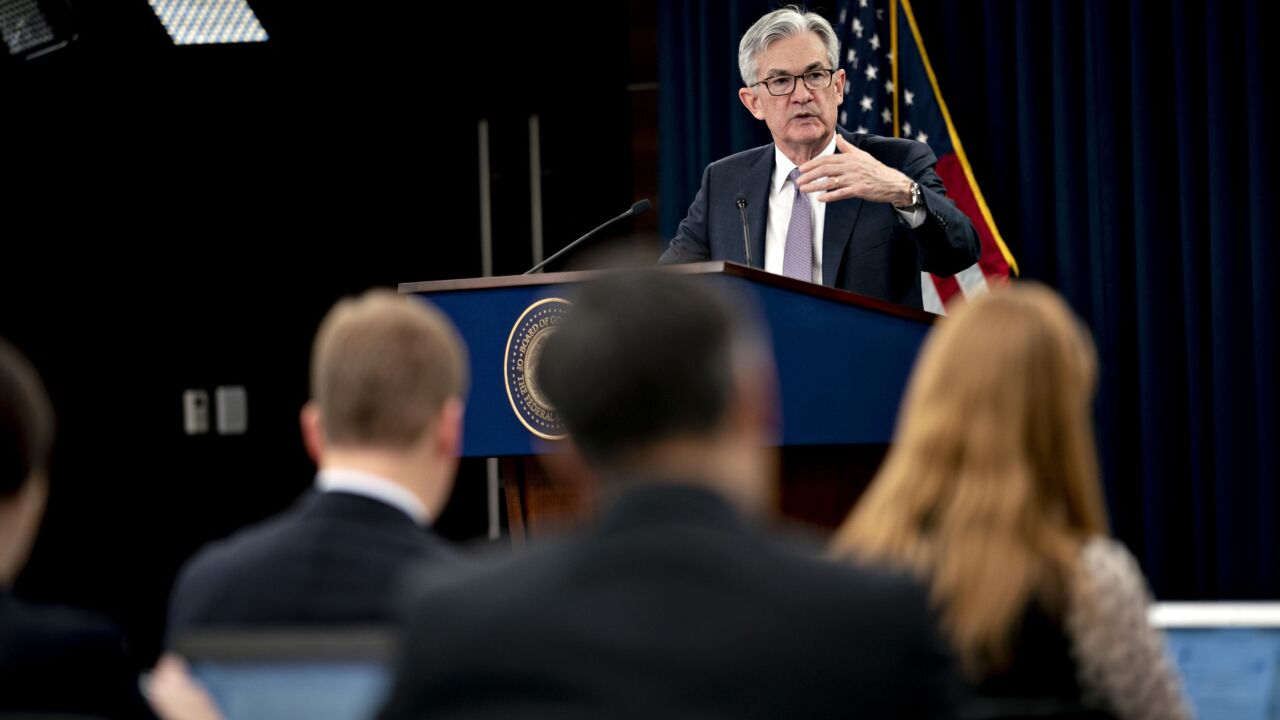It will be years before faster, high-capacity 5G wireless technology is ubiquitous, but the payments industry can already begin to capitalize on its benefits.
The major areas where 5G can help are in mobile commerce and fraud detection, according to Mastercard. For shopping, the technology makes it easier to bring the data-driven perks of online shopping into stores; for fraud, it allows for better vetting by providing faster access to more information and devices.
"We see 5G doing two things: increasing speed and lowering the latency of existing processes to create some really Jetson-esque new shopping and payment capabilities," said Femi Odunuga, senior vice president of Mastercard Foundry.
Despite a slower rollout of the wireless technology due to the pandemic, telecom industry forecasters estimate 5G will be available to about 40% of consumers worldwide by 2024, and 55% of North America's mobile phone subscribers.
Along with enhanced shopping, 5G could improve card security and response time when using mechanisms like biometrics to authenticate payments, said Julie Conroy, head of risk insights and advisory for Aite-Novarica Group.
“5G also provides an opportunity for evaluating ancillary signals so, for example, an issuer could connect known signals from your Alexa, your iPad and your ‘smart’ car so they’re assured it’s you,” Conroy said.
Mastercard, which is
"In rural areas where there's poor connectivity now and in overloaded urban zones, 5G will super-charge access, giving consumers and merchants new tools for managing loyalty, optimizing prices and analyzing fraud," Odunuga said.
In developing nations where millions of unbanked consumers rely on mobile money transfers, 5G will dramatically improve usage, he said.

For example, the cloud-based Tap on Phone technology Mastercard began piloting early this year, turning smartphones into payment acceptance devices, works best under 5G.
"Although mobile money services are available in Africa, it's very complicated and any transactions usually require users to enter phone numbers and merchant codes manually. With 5G, these things become simple and fast," Odunuga said.
Since Verizon began working with Mastercard on 5G innovations at its New York City Tech Hub, several projects in development over the last couple of years have been reinvigorated, Odunga said.
Examples include using 5G to power "internet of things" devices and wearables to make shopping a natural extension of consumers’ interests.
“Imagine wearing a pair of sunglasses equipped so you can see an item in a store window, tap the glasses to order it on the spot and ask for it to be delivered to your house,” Odunuga said.
The pandemic helped sharpen the vision for new 5G-powered payments use cases by exposing the limits of existing technology, according to Odunuga.
“COVID-19 expanded the need for medical systems extending care to remote settings, and in health care there's a heightened need to protect identity and other data that payments infrastructure can help solve with 5G,” he said.
Verizon is also helping Mastercard push development of shopping and delivery using self-driving cars, Odunuga said. With Verizon now providing guidance for how 5G can be applied, Mastercard is recalibrating the capabilities for its Shop Anywhere and AI Powered Drive Through solutions which it announced last year, many focusing on unattended retail shopping.
One example is a pilot of Mastercard’s Shop Anywhere platform powered by Accel Robotics where customers walk into a Dunkin’ store and pick up their own coffee and donuts, while the payment takes place automatically through the Dunkin app.
Circle K is also working on a concept enabling customers to pay automatically for gas and snacks without interacting with clerks. With Delaware North, Mastercard is developing stores where customers at entertainment venues, airports and national parks can make secure purchases at unsupervised locations at any hour.
At Sonic Drive-In, technology from SoundHound and Rekor Systems uses vehicle recognition and voice ordering to enable customers to place orders rapidly from a personalized menu.
Mastercard's mission with Verizon is to spend the next 12 to 18 months building a new ecosystem for commerce around 5G by testing payments in everyday and new IoT environments, Odunuga said.
"You won't see a Mastercard store, per se. But Mastercard is working to find all the ways 5G can be used to make payments virtually anywhere," he said.





